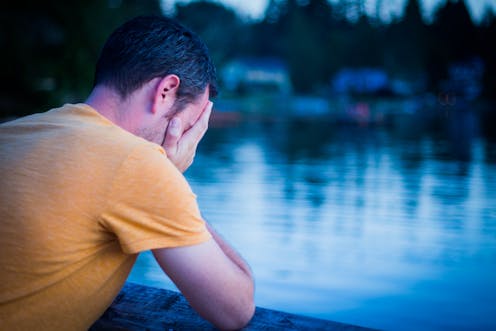A traumatic past can make you a better social worker, but it might block you studying it in the first place
- Written by Peter Young, Lecturer in Social Work, Griffith University

Last year, I received a phone call from a prospective student. She wanted to know if our university would accept her into a Master of Social Work program. Another local university had just knocked her back.
The caller had a drug-related criminal history and was ineligible for a working with children clearance (a blue card in Queensland).
She explained she had a previous conviction of drug importation – an offence she committed to help support her heroin addiction. Now, free of drugs, she wanted to do something positive using what she had learnt from this difficult period of her life.
Such stories are common – many social work students have traumatic histories that have led them to pursue that particular career choice.
But a working with children clearance is a precondition of enrolment in two-thirds of Australian universities (even if the student doesn’t intend to work in a child-related field). The remaining universities flag this as a likely requirement prior to undertaking placement – a practical placement is integral to a social work degree.
As serious drug-related offences generally prohibit people from getting a working with children clearance, the caller would be ineligible to study in most Australian universities. And yet lived experience can make for better social workers.
Working with children clearance is almost universal
The Royal Commission into Institutional Responses to Child Sexual Abuse highlighted the terrible consequence for people betrayed by trusted carers. The lesson from this, and other similar inquiries, is we must do all we can to keep children safe.
To reduce the risk of harm to children, Australian states and territories now screen staff and volunteers before allowing them to work with children. Screening arrangements take varying forms, but all broadly adopt the same approach.
Read more: Protecting children from abuse in organisations needs leadership and cultural change
Past contact with the criminal justice system (including juvenile offences) are evaluated to determine whether a person might pose a risk to the well-being of children who may be in their care. Some past offences, such as violent or sexual crimes against children, trigger automatic ineligibility.
Other offences, such as drug-related convictions, are considered on a case-by-case basis.
Social work degrees require students to do 1,000 hours of (usually unpaid) supervised practice. Universities depend on the goodwill of human service organisations for these field placement opportunities.
But risk has become a central consideration in the design and delivery of welfare services in Australia. It is now common for adult-specific welfare services to require all staff and volunteers, including social work students, to have a child-related suitability clearance.
To not use the most stringent risk-screening tools available, even if not needed by law, could be thought of as negligent. So working with children clearances have become an almost universal requirement in the human services sector. But this focus on mitigating risk has a significant impact on social work programs.
Social workers and trauma
Social work students have a much higher incidence of various forms of childhood trauma than students of other disciplines. A 1993 US study found 22% of social work students reported childhood sexual abuse compared to 2% of business students.
Many people who gain criminal convictions have also experienced childhood or adult trauma and associated self-medication using illicit drugs. One study of women in prison in New South Wales found 70% had been victims of childhood sexual abuse. Of these, 98% reported they were drug users (mostly heroin) and that their engagement with the criminal justice system was closely tied to drug use.
As this trend of excluding people with a range of criminal convictions from studying social work continues, Australia will inevitably have fewer social work graduates with lived experience of trauma and addiction.
Read more: Cutting to numb the pain of sex abuse: interviews with young women in drug treatment
This is a problem because studies have found lived experiences to be helpful in a range of social work fields. These include addiction-treatment programs, mental health, domestic and family violence, and working with sex workers.
And given the over-representation of Aboriginal and Torres Strait Islander people in the criminal justice system, Australia will have fewer First Nations People eligible to study social work.
The people disadvantaged by this emerging trend are not just prospective students. They are also future clients, who will have reduced access to practitioners who can draw on the lessons from their own journey of recovery from past trauma.
Legislative reform to prohibit organisations from requiring child-related criminal history clearances for roles that don’t provide services to children would be a helpful start to tackling this unintended adverse outcome.
Universities can also play a role by more actively valuing the lived experience of students with trauma histories. We can seek out creative solutions to the difficulties of finding placements for these students with criminal histories.
As for the student who called, she would be accepted into our social work program and her future clients would benefit.
Authors: Peter Young, Lecturer in Social Work, Griffith University



















